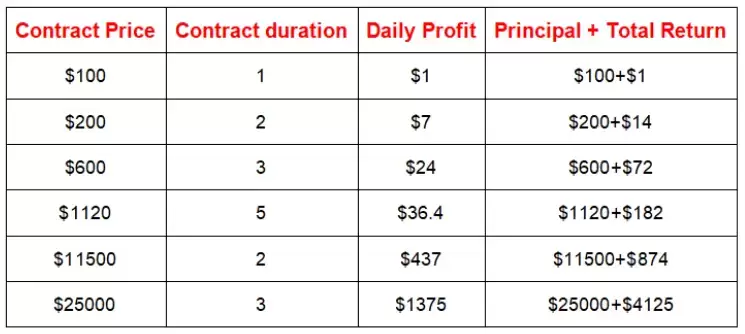 |
|
 |
|
 |
|
 |
|
 |
|
 |
|
 |
|
 |
|
 |
|
 |
|
 |
|
 |
|
 |
|
 |
|
 |
|
猶太出版社協會主任兼主編Malka Z. Simkovich是對古代猶太人社區與埃及之間關係的深入研究,學術和迷人的探索。
A new book explores the relationship between the Jewish communities of Israel and Egypt in ancient times, examining the integration of the elite into the ruling class in Ptolemaic Egypt and the political failures of the Hasmonean monarchy in Judea.
一本新書探討了古代以色列和埃及猶太社區之間的關係,研究了精英階層納入托勒密埃及的統治階級,以及猶太人的哈斯蒙君主制的政治失敗。
During the late second century BCE, while Jews in Egypt were well represented in the Ptolemaic government, the political failures of the Hasmonean monarchy in Judea were becoming apparent, with the Jews remaining in conflict with the Seleucid Greeks.
在公元前第二世紀後期,儘管埃及的猶太人在托勒密政府中得到了很好的代表,但猶太人的哈斯蒙君主制的政治失敗越來越明顯,猶太人仍與希臘人衝突。
“Jews wanted to show their kin who lived abroad, particularly those living in Egypt, that they were far from powerless. They believed that Jews in Egypt should neither pity nor condescend to them. Instead, Egyptian Jews were to admire them as authorities,” writes Malka Z. Simkovich, director and editor-in-chief of the Jewish Publication Society, in her new book, Letters from Home: The Creation of Diaspora in Jewish Antiquity (Johns Hopkins University Press).
猶太人想向他們展示住在國外的親戚,尤其是居住在埃及的人,他們遠非無能。他們認為,埃及的猶太人既不應該憐憫或屈服於他們。相反,埃及猶太人要欣賞他們作為當局的權威。 ”猶太古代(約翰·霍普金斯大學出版社)。
This Stone block portrays the Egyptian pharaoh Akhenaten as a sphinx. It is kept at the Kestner Museum of Hanover, Germany. (credit: Hans Ollermann/Wikimedia Commons)
這個石塊將埃及法老王阿克哈納嫩描繪成獅身人面像。它保存在德國漢諾威的凱斯特納博物館。 (信用:Hans Ollermann/Wikimedia Commons)
Simkovich explains that Judean Jewish texts produced during the Second Temple period for the Jewish community in Egypt quoted biblical heroes and religious leaders who lamented that Jewish suffering outside Judea was a consequence of sin. Meanwhile, Jewish texts produced in Egypt purported to quote Judean Jewish leaders who embraced life outside the homeland as legitimate and long-lasting.
辛科維奇(Simkovich)解釋說,第二座聖殿時期為埃及的猶太社區製作的猶太猶太文本引用了聖經英雄和宗教領袖,他們對猶太以外的猶太人痛苦感嘆是罪惡的結果。同時,在埃及製作的猶太文本據稱是引用猶太猶太領導人的話,他們將祖國以外的生活視為合法和持久的生活。
“The idea of diaspora became a flexible template upon which early Jews developed competing cosmologies that addressed the question of how the Land of Israel figured into God’s relationship with the covenantal people,” she writes.
她寫道:“僑民的想法成為了一個靈活的模板,早期猶太人開發了競爭的宇宙學,該宇宙學解決了以色列土地如何使上帝與盟約人的關係的問題。”
The dynamic between Jews inside Israel and those living outside
以色列內部的猶太人與生活在外面的人之間的動態
LETTERS FROM Home is divided into three sections. The first discusses the dynamic between the Jewish community inside Israel and those living outside.
家中的信件分為三個部分。第一個討論了以色列內部猶太社區與居住在外面的人之間的動態。
While the Jews in Israel attempted to explain that Jewish existence outside the land was a result of sin that resulted in God’s anger and rejection, those living outside of Israel “wrote texts that present the family of world Jewry as united in values and bound by a common history” and emphasized that God is equally accessible anywhere.
儘管以色列的猶太人試圖解釋,土地之外的猶太人的存在是罪的結果,導致了上帝的憤怒和拒絕,但生活在以色列以外的人”寫了“寫下世界猶太人的猶太人家庭,在價值觀上,並受到共同的歷史的束縛”,並強調上帝在任何地方都可以在任何地方訪問。
Simkovich posits that the writers of the Septuagint, the Greek translation of the Torah written in the late 3rd century BCE, were influential in creating a negative attitude toward Jewish life outside of the land, inventing the word diaspora, which means “a scattering of seeds.”
辛科維奇(Simkovich)認為,七十年代的作者是公元前3世紀後期寫的《摩西五經》的譯本,在對土地之外的猶太人生活中產生消極態度,發明了僑民一詞,這意味著“散佈種子”。
This term was used in translating passages of the Bible that predicted the future expulsions of the Jews from their land and exposure to other nations.
該術語用於翻譯聖經的段落,這些段落預測了猶太人未來被驅逐出其土地並曝光到其他國家。
“The Septuagint, which may have been produced in Egypt but was influenced by Judean modes of thinking, can be read as a Judean missive intended for Egyptian Jewry,” she writes. Eventually, the negative connotation of the word became dissonant with the reality of most Jews living outside of Israel.
她寫道:“ Septuagint可能是在埃及生產的,但受到猶太人思維方式的影響,可以看作是旨在用於埃及猶太人的猶太人的遺書。”最終,這個詞的負面含義與居住在以色列以外的大多數猶太人的現實變得不和諧。
The second section of the book analyzes 2nd-century BCE Judean texts in which the writers posited that Jewish existence outside of Israel was an indication of divine rejection. The Judean Jews had hoped that the Hasmonean victory over the Seleucid Greeks would signal a new era of Jewish sovereignty and an ingathering of Jews to Israel.
本書的第二部分分析了公元前2世紀的猶太人文本,其中作家認為以色列以外的猶太人存在是神聖拒絕的跡象。猶太人猶太人曾希望,哈斯米尼(Hasmonean)擊敗塞伐希臘人的勝利將表明猶太人主權的新時代,並促使猶太人進入以色列。
To their dismay, a mass return did not take place. The Jews of Judea exhorted the Egyptian Jews to observe holidays that affirmed Judean authority, and their texts expressed concern that they were not sufficiently devoted to Judea.
令他們沮喪的是,沒有發生大規模回報。猶太人的猶太人勸告埃及猶太人觀察肯定猶太權威的假期,他們的文字表示關注他們沒有足夠致力於猶太人。
The book’s final section discusses how the Egyptian Jews related to the Jews of Israel, embracing both identities – of citizens loyal to their host country while retaining their feelings for their homeland. In these documents, God is presented as universally present and interested in all humankind, thereby strengthening their claim that Egypt could be their home.
該書的最後一部分討論了埃及猶太人如何與以色列猶太人相關,擁抱了這兩個身份 - 忠於東道國的公民,同時保留對家鄉的感情。在這些文件中,上帝被普遍存在和感興趣,從而加強了他們的主張,即埃及可能是他們的家。
What did the success of these Diaspora communities indicate? Would God someday put an end to their state of exile? Or, if God would allow them to remain, what did life outside the land mean, theologically speaking?
這些僑民社區的成功表明了什麼?上帝有一天會結束他們流放的狀態嗎?或者,如果上帝允許他們留下來,從神學上講,土地以外的生活意味著什麼?
Ultimately, the Jewish people never agreed on the answers to these questions. The author points out that the relationship between the two communities created an underlying tension in their relationship, not unlike the modern-day relationship between world Jewry and the Jews of the State of Israel.
最終,猶太人從未同意這些問題的答案。作者指出,兩個社區之間的關係在他們的關係中造成了潛在的緊張關係,這與世界猶太人與以色列國猶太人之間的現代關係不同。
With the destruction of the Temple in 70 CE, the rabbis, realizing that Jewish life outside of Israel was a reality that required attention, created a way of Jewish life that could accommodate the absence of a Temple, focusing on study and synagogue attendance.
隨著公元70年的寺廟破壞,拉比人意識到以色列以外的猶太人生活是一個需要關注的現實,創造了一種猶太人生活的方式,可以適應缺席的寺廟,專注於學習和猶太教堂的出席。
Their innovations, concludes Simkovich, enabled Jews, wherever they lived, “to embrace sacred space and sacred time as twin pillars of Jewish faith. Even today, these features form a tension that cannot – and need not – be resolved.”
辛科維奇(Simkovich)總結說,他們的創新能夠使猶太人居住在任何地方,以“擁抱神聖的空間和神聖的時間,作為猶太信仰的雙支柱。即使在今天,這些特徵即使在今天也無法解決 - 不需要解決 - 不需要 - 可以解決。”
免責聲明:info@kdj.com
所提供的資訊並非交易建議。 kDJ.com對任何基於本文提供的資訊進行的投資不承擔任何責任。加密貨幣波動性較大,建議您充分研究後謹慎投資!
如果您認為本網站使用的內容侵犯了您的版權,請立即聯絡我們(info@kdj.com),我們將及時刪除。
-

- 隨著加密貨幣市場的發展,XRP和Dogecoin又重新成為了焦點
- 2025-04-22 00:00:44
- 隨著加密貨幣市場穩步發展,XRP又重新成為眾人矚目的焦點,到2025年,它的樂觀預測將其接近6美元。
-

-

- 比特幣的眼睛$ 88,000突破,因為安全敘事獲得了蒸汽
- 2025-04-21 23:55:12
- 根據新加坡QCP Capital的新分析,真正的測試就在於$ 88800,這是一個關鍵阻力水平。
-

- 隨著加密貨幣市場開始恢復,比特幣更接近90,000美元,投資者的利息逐漸返回
- 2025-04-21 23:55:12
- 隨著加密貨幣市場開始恢復,比特幣更接近90,000美元,投資者的利息逐漸返回。
-

-

-

- 黃金支持的Stablecoins解釋說:它們是什麼,它們如何工作?
- 2025-04-21 23:45:12
- 黃金支持的穩定幣是將數字貨幣固定在物理金儲備中,旨在保持穩定的價值。
-

-


























































